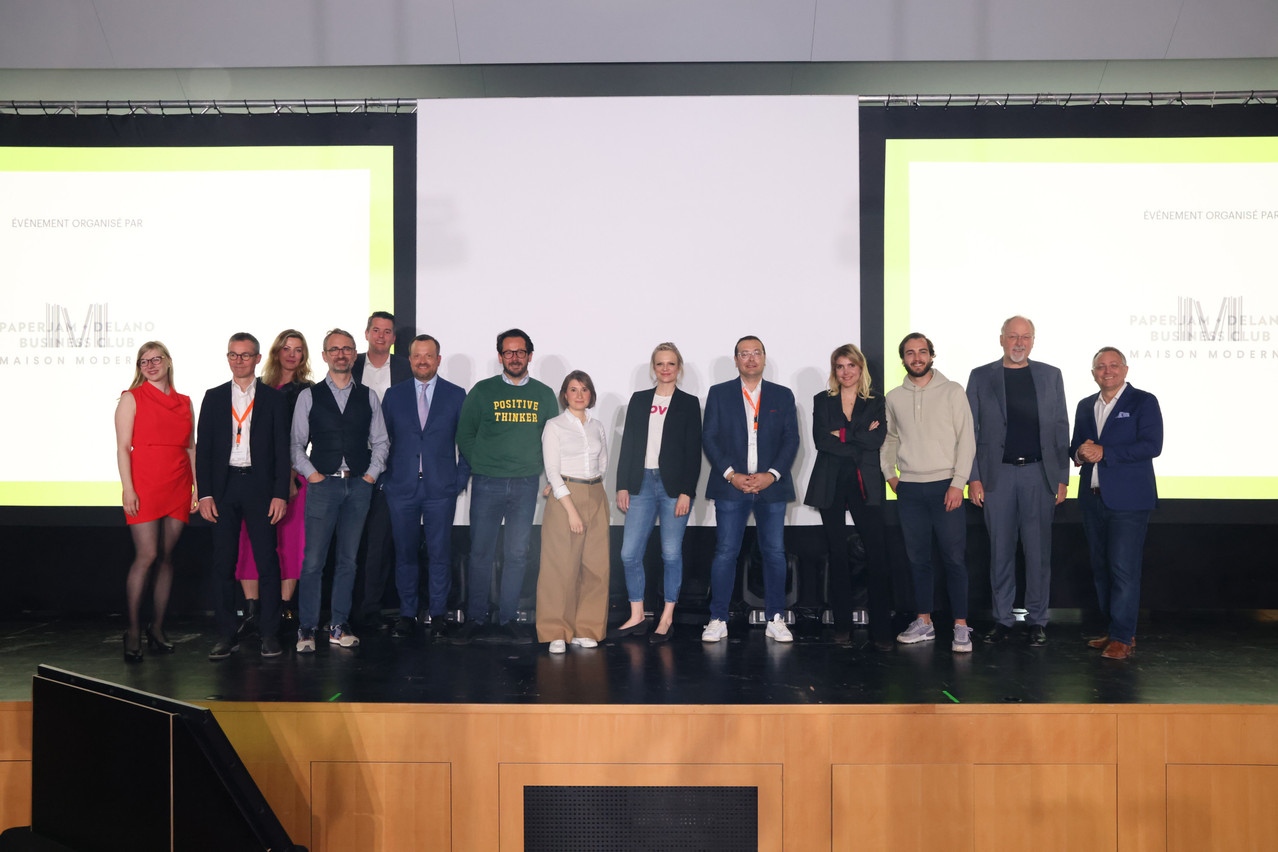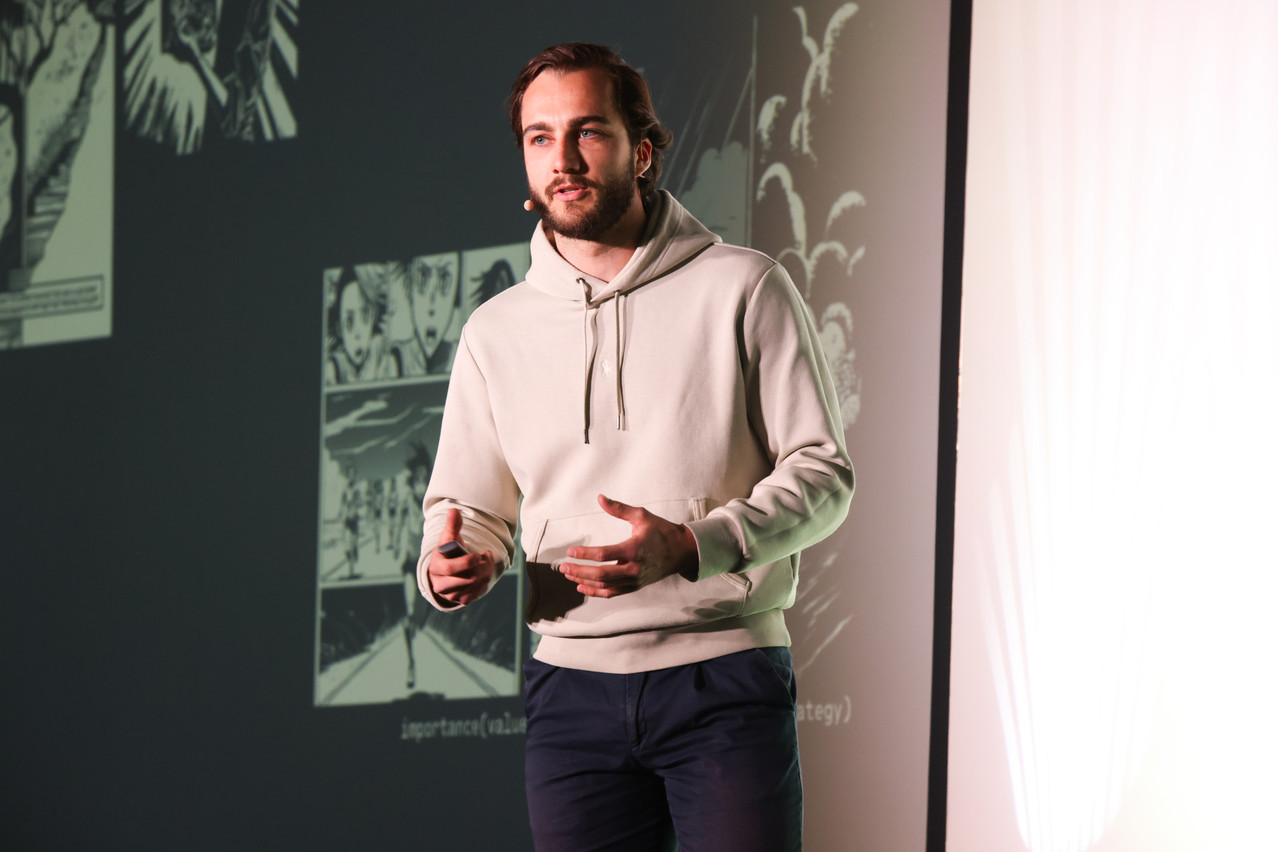“Companies are true shape-shifters, and let me illustrate this with the image of the startup being a mouse,” said moderator , setting the stage for the evening. Fandel is director of a consultancy and training business. “As a mouse, you basically feed on cheese, you feed on books, you feed on furniture. But once you start to grow up and become a scale-up, you become a gazelle.” And a gazelle needs high-energy food, he added.
Scale-ups have different needs than startups, as explained by the evening’s various speakers. “It’s a science, not an art,” said Paperjam + Delano Business Club’s Katarzyna Bialek in her introduction.
“Unlearning” what you already know
Genna Elvin from Tadaweb focused on the “power of unlearning” in different phases of running a company. In earlier stages, some of the main things that companies have to rapidly learn is how to have a “huge appetite for risk” and how to be a “one-man band, doing everything yourself.” But in the next phase of a company’s growth, “what you need to rapidly unlearn… is that you can’t keep taking uncalculated risks,” she continued.
Once their company reached 60-100 people, Elvin explained that “this was a really interesting time, because it was a time that we really truly understood that generating positive cash flow was critical. And this was a massive learning curve for us.” Before, the company had been focused on building “really cool stuff.” Suddenly, the “importance of organic cash flow” became very apparent.
After offering other examples of things to “unlearn,” Elvin concluded, “Most of the techniques that work for an early stage startup: they simply don’t scale. And it’s that ability to unlearn--and unlearn quickly--that will really get you through.”
The best products may not always win, but the best teams do
Felix Hemmerling from Kodehyve focused on the “people” part of scaling up, talking about the importance of radical ownership and radical transparency. Founders have to juggle many activities, such as selling products and services, managing finances and recruiting talent. But the element that he considered to be the most important--and the most complex--was the people.
Hemmerling noted that success is not only thanks to the individuals involved, but also the principles of radical ownership and radical transparency. “The right team is a team that ultimately possesses the right skills or capabilities that are required to achieve a company’s ambition, but one that takes ownership and that’s in alignment with the company’s values and principles.” As a company grows and pivots, it needs to be able to rely on team members who are “truly aligned” with the company’s values, principles and mission.
It’s also important to take “full responsibility” for both positive and negative outcomes, as well as “being humble enough to share your lack of experience and knowledge in various subjects or domains” with your team. That’s the transparency part, said Hemmerling. Being transparent when you don’t know something, about negative aspects, and about who you are as a person is key.
“While a company’s aspirations should definitely be to build and sell the best products, remember that the best products may not always win--but the best teams do,” he concluded.
Change as part of routine
Arendt’s Jean-Marc Ueberecken--who joked that the last time he was in the auditorium of the Athénée high school was to sit his final exams--offered the perspective of a large law firm in Luxembourg. “The scaling up of companies requires two angles,” he said. “One is the agility of the entrepreneur. And the second one is the stability of the company’s fundamentals.”
Because the company is constantly growing, “change must be part of our routine.” In order to maintain the firm’s culture and people’s engagement, the company actually changes its internal organisation quite often, “because we want to make sure that everybody works in a team of human size.” It’s also important to take into account the changing demands of clients--for new services, new products and new ways to deliver these products.
Change and rapid adaptability are key for companies in other sectors as well. Clémentine Venck from Cocottes discussed how the covid-19 pandemic derailed her company’s plans in March 2020, but highlighted how the team worked together to change their business model “with agility,” launching a new website and starting home deliveries.
“Did everything always work? Far from that,” said Venck. “But we have learned from our mistakes and we knew how to adapt--to adapt our strategy of development to the external environment, while remaining loyal to our values.”

From left to right: Katarzyna Bialek (Maison Moderne), Patrick Kersten (Startups.lu), Gosia Kramer (The Office), Régis Claudel (Blue Wire), Lex Delles (DP), Jean-Marc Ueberecken (Arendt & Medernach), Damien Chasseur (Collaboration Betters the World), Clémentine Venck (Cocottes), Genna Elvin (Tadaweb), Vincent Lyonnet (Steel Shed Solutions), Carolyn Prestat (Fiveoffices), Felix Hemmerlin (kodehyve), Jean-Marc Fandel (scaleup.de), Pedro Castilho (Verbalius). Photo: Eva Krins/Maison Moderne
Luxembourg’s minister for small and medium enterprises (DP) was also present at the event. Delles spoke briefly about the grand duchy’s desire to support SMEs, mentioning programmes such as Fit4Start and the SME packages.
Check out the full picture report .
